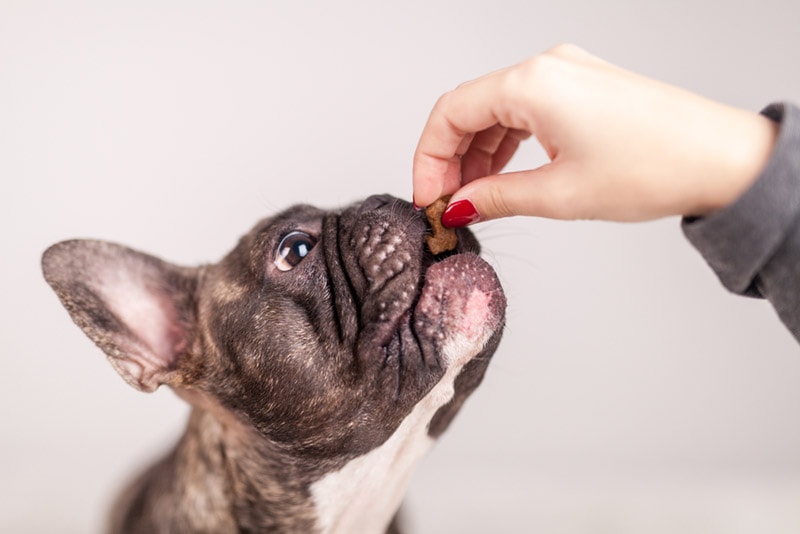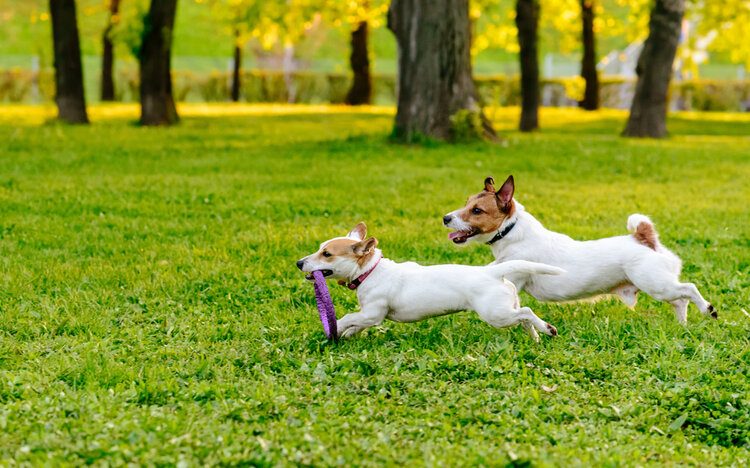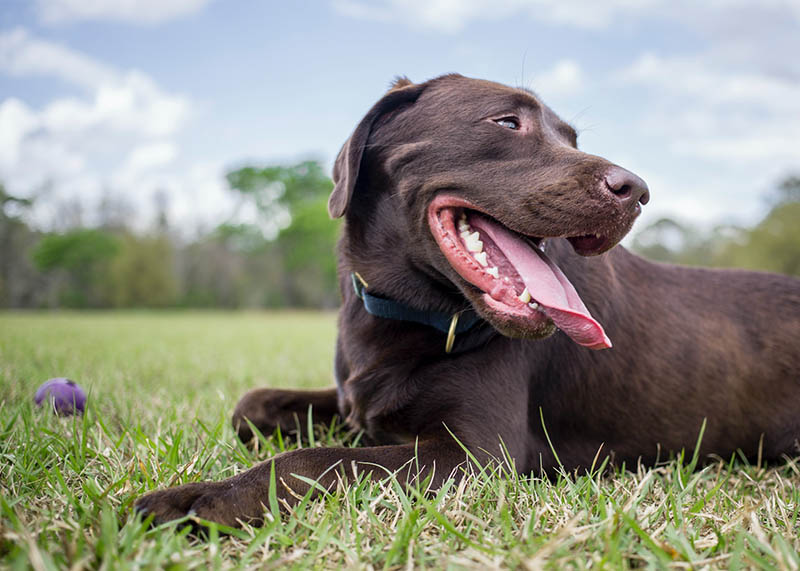Is Loud Music Bad for Dogs? Vet-Approved Facts & FAQ
By Kit Copson
Updated on
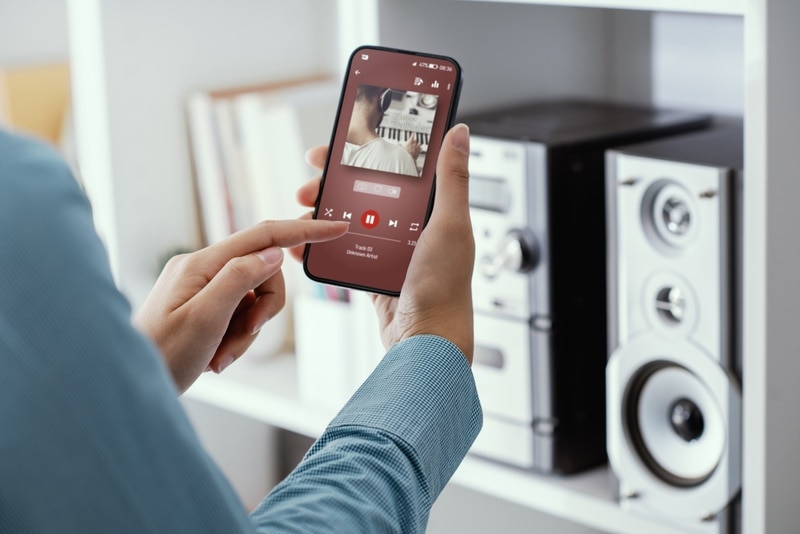
If you like your music really loud but you’re a dog parent, it may be time to turn down the volume. Studies have found that—just like with humans—loud music can be stressful and even harmful to dogs. In this post, we’ll explore why it’s best not to expose dogs to loud music and other noises that may cause damage to their ears and, in some cases, mental health.
Why Is Loud Music Bad for Dogs?
Though dogs may play it cool, even the most chilled-out dog can be sensitive to loud noises. According to a Science Daily report, loud noises can cause hearing impairment or even hearing loss in dogs. As Dr. Kari Foss, a veterinary neurologist and professor of veterinary clinical medicine at the University of Illinois at Urban-Champaign, explains, the eardrum and small inner ear bones can become damaged if dogs are exposed to extreme noise.
Dr. Foss also recommends that dogs exposed to extreme noises, such as police dogs, be provided with hearing protection. In addition to this, loud sounds can be just plain stressful for dogs. A dog’s ears are more sensitive than those of humans, and they experience stronger reactions to higher frequencies.
Case in point, you may have noticed your dog hiding, trembling, whining, yelping, or even urinating in fear when fireworks go off or a loud “boom” is heard, whether close by or in the distance. Dogs can also be affected by seemingly far-off sounds that you barely even notice. Common triggers include thunder, fireworks, and sirens. For this reason, it makes sense that music cranked up to max would be unsettling for your dog.
Sadly, in some cases, past trauma can be a cause of noise anxiety in dogs. This can happen to any dog but especially rescues.
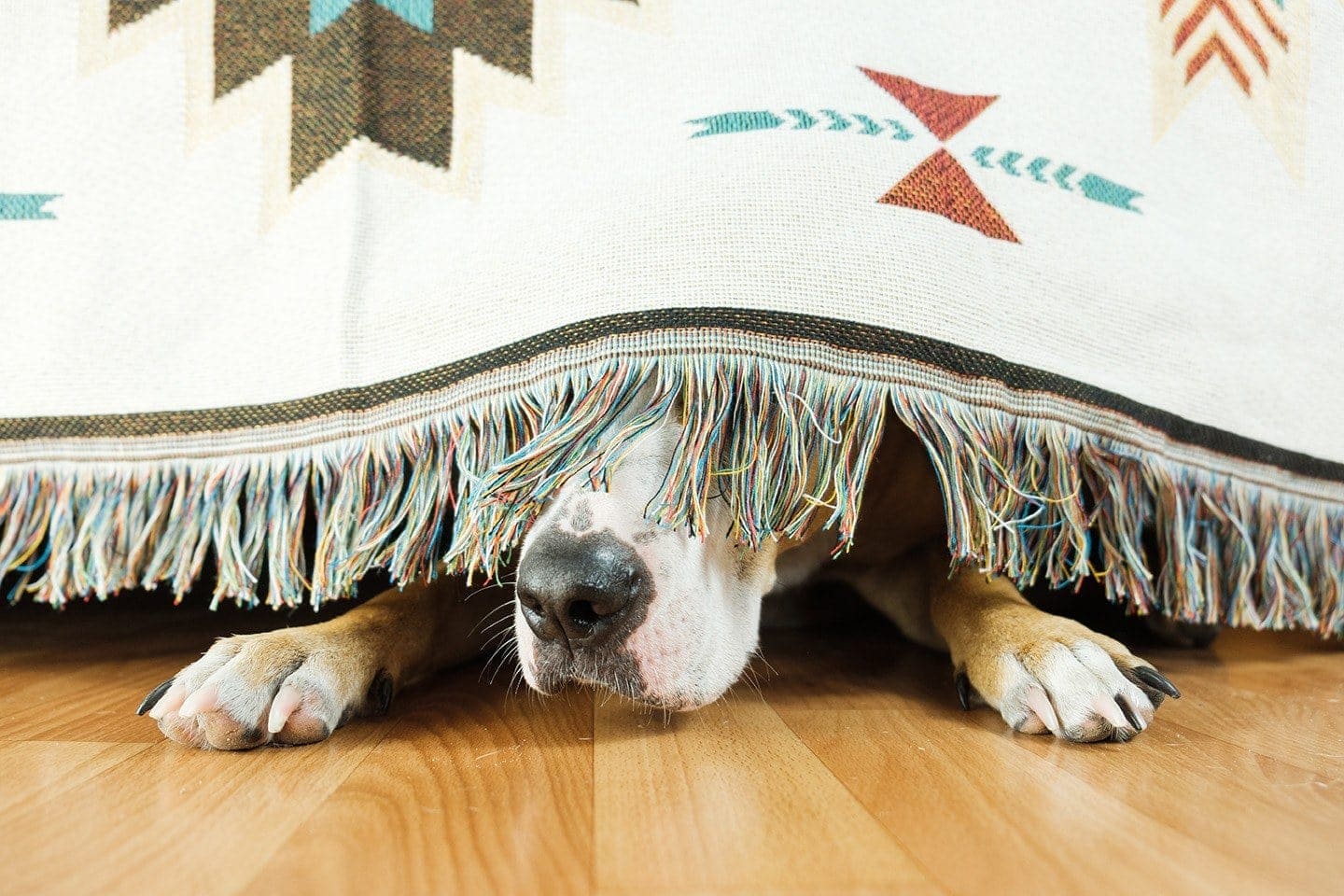
How Can I Help My Dog With Noise Phobia?
Apart from keeping your environment as calm and peaceful as possible, there are some steps you can take the reduce your dog’s sound anxiety.
Play Your Music at a Low Volume
When your dog’s around, keep the volume down. This helps to get your dog used to the sound of music, and you still get to enjoy your tunes but at a reasonable volume.
Reassure Your Dog
Give your dog lots of reassurance when noises happen that you have no control over (thunder, fireworks, neighbors, etc.). Speak in a calming tone and provide plenty of cuddles to help them feel safe again.

Desensitize Your Dog to Loud Sounds
This doesn’t mean that, in the long run, you should be putting your dog in overly noisy environments that will stress them out; just that you get them more used to the sounds they may hear over the course of their lifetime. Play sounds that dogs typically fear like thunder or firework sounds at a low volume.
Provide a Safe Space
Always have a safe space available where your dog can hide if they’re afraid. This could be their bed, favorite box or crate, or even curled up at your side on the couch.
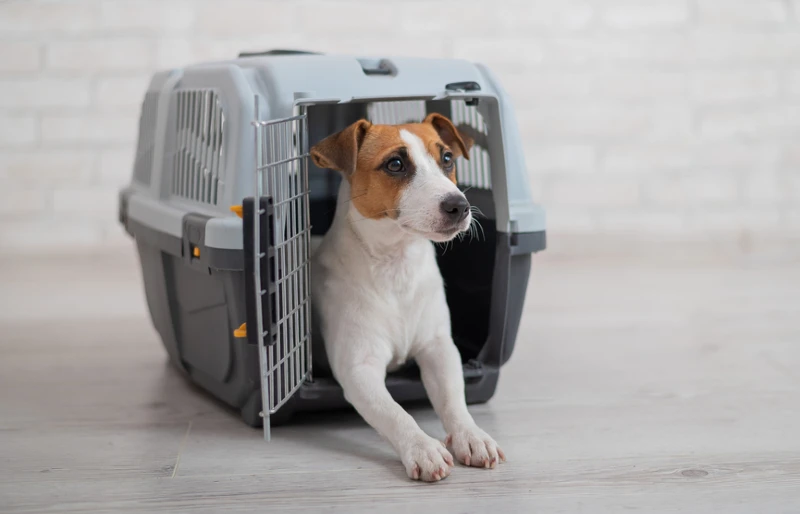
Play With Your Dog
Distract your dog by playing with them when there are loud sounds going on. If your dog is really anxious and refuses to play, don’t try to force them, as they can learn to associate this positive activity with the stress the loud sound causes.
Talk to a Vet
Most dogs are noise-nervous, but your dog seems to be frequently stressed out or frightened, talk to your vet. Together, you can get to the root of what’s causing your dog to be so afraid and find out what you can do to improve the situation. In some cases, vets prescribe calming medication as a temporary aid. They may also recommend behavioral therapy depending on the severity of the situation.

Final Thoughts
As much enjoyment as you get out of your music, it’s better to avoid playing it at loud volumes around your dog due to their sensitivities. You should also keep other sounds like banging, bashing, or shouting to a minimum. All dogs deserve an environment where they can feel safe and calm. For factors beyond your control, use your soothing presence to reassure your dog.
See Also:
- Why Are Dogs Scared of Fireworks? 3 Reasons & Tips to Keep Them Calm
- Why Are Dogs Afraid of Thunderstorms? Common Reasons & Solutions
Featured Image Credit: Stock Asso, Shutterstock



